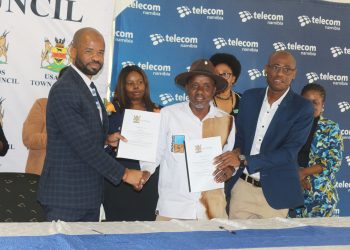
Namibia is in the process of developing a consolidated national Fourth Industrial Revolution (4IR) strategy and to increase the sector’s contribution to the national economy by means of advancing innovation and future technologies, President Hage Geingob has said.Â
“In line with the recommendations of the Task Force, the Government is currently developing a consolidated national 4IR strategy to provide overarching direction and multi-sectoral planning. The strategy will prioritise education reform to close the 4IR skills gap, cybersecurity and the expansion of ICT infrastructure and services,†he told the United Nations General Assembly.Â
This comes as the 4IR Task Force officially handed its country readiness report to Geingob last month.Â
According to some of the findings contained in the report, the unemployed people in Namibia are insufficiently supported in terms of reskilling and finding new employment for the fourth Industrial Revolution, while a recommendation was made for the establishment of a national data centre as a critical asset.Â
The eight-member Task Force – which was chaired by University of Namibia’s Pro-Vice Chancellor for Research, Innovation and Development Professor Anicia Peters – was established under the economic advancement pillar of the second Harambee Prosperity Plan to assist the government in harnessing the full potential presented by the confluence of technologies for the future of work and the socio-economic development of Namibia.Â
The 4IR Task Force was appointed by the President in July 2021 to serve for a year until 30 June 2022.Â
Other members of the task force included Namibia University of Science and Technology’s Vice Chancellor Erold Naomab; Senior Economist at Bank of Namibia Grace Hamauka; SME Executive at Namibia Investment Promotion and Development Board Dino Balloti; UNAM Vice Chancellor Kenneth Matengu; Internet Society of Namibia’s Nashilongo Gervasius; University of Johannesburg Vice Chancellor Tshilidzi Marwala; and Deloitte’s Africa and Emerging Markets Managing Director Martyn Davies.Â
The 4IR was coined and defined in 2015 by Klaus Schwab, an Executive Chairman of the World Economic Forum, as a fusion of technologies across the cyber, physical, and biological spheres, as well as rapid advances in technology that resulted in emerging technologies such as Artificial Intelligence, amongst others.











